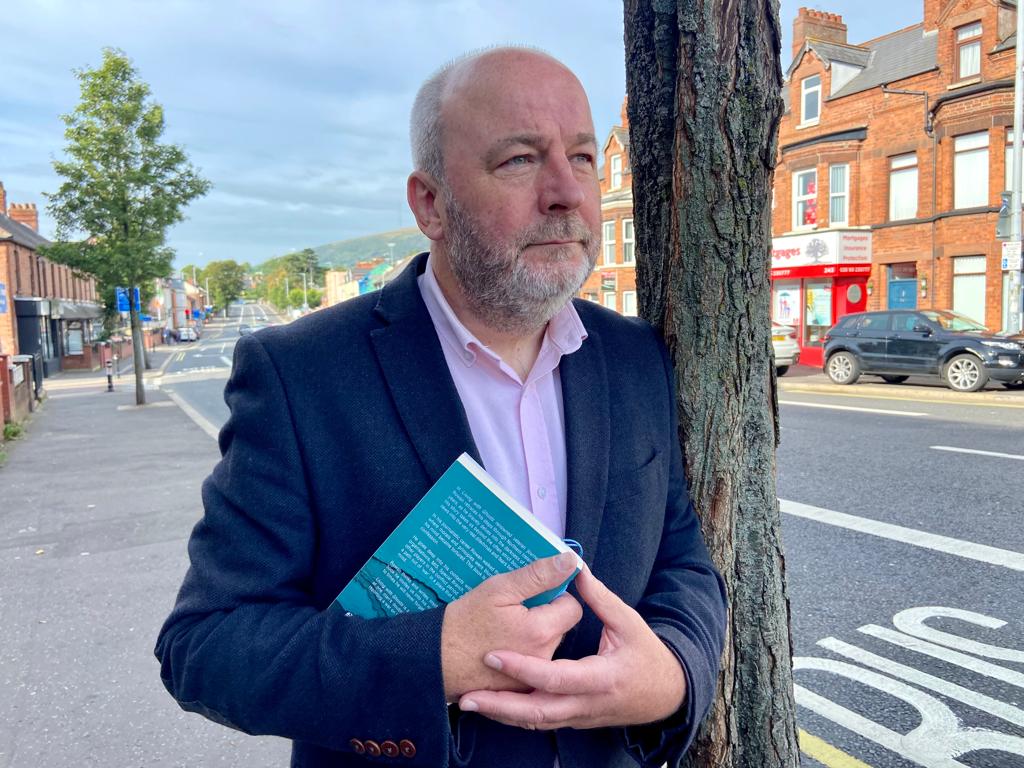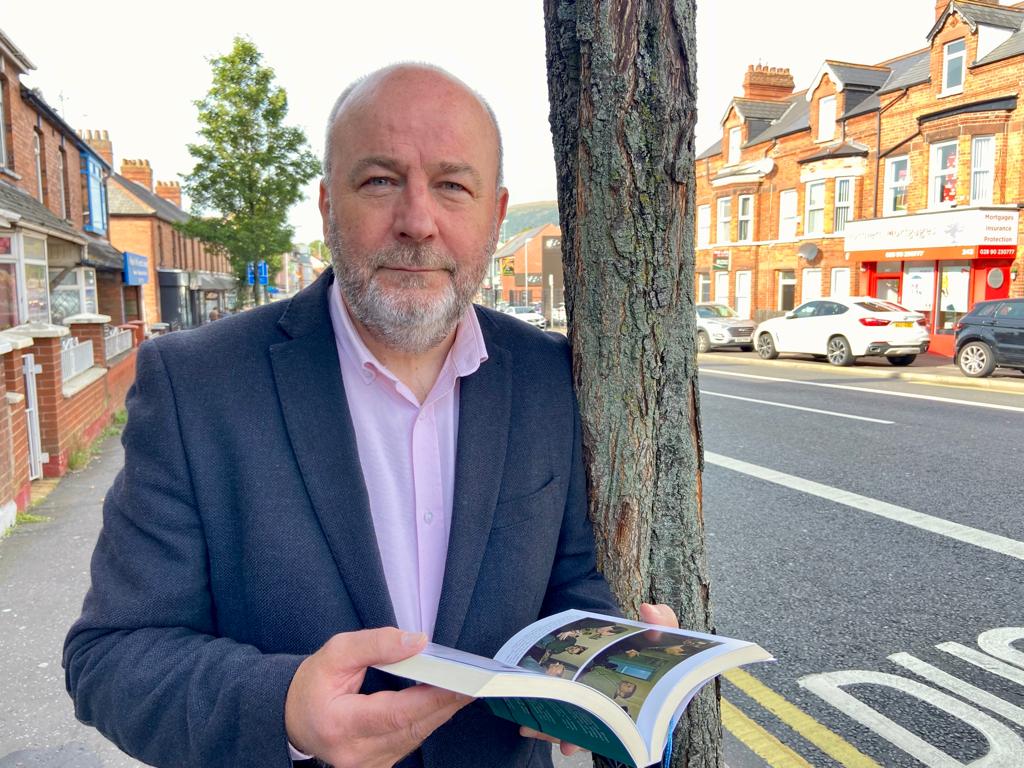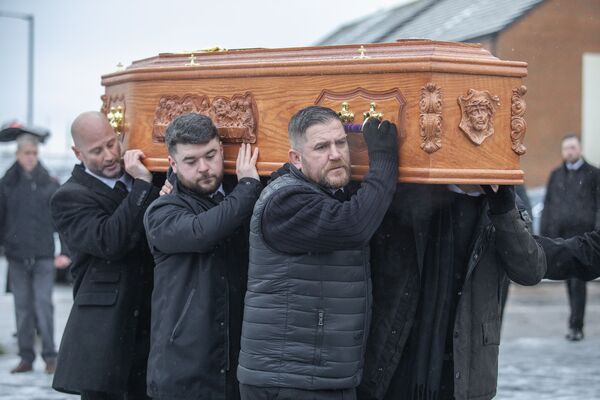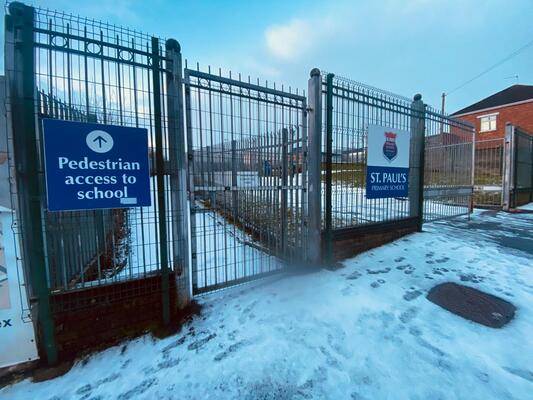A RENOWNED former BBC journalist says he has penned his latest book to try and get rid of the 'ghosts' from his time reporting the conflict.
Since the late 1980s, Barney Rowan has reported on all the major developments on Northern Ireland's journey from war to peace; stories he has told using a range of sources including IRA, loyalist, police, military, intelligence, political and the churches.
Rowan left the BBC in 2005, the year the IRA ended its armed campaign. Four times he has been a category winner in the Northern Ireland Press and Broadcast awards, including twice as Specialist Journalist of the Year.
This week, he launched his seventh book, 'Living with Ghosts– The Inside Story From A Troubles' Mind.'
Speaking to the Andersonstown News, Brian explained more about the concept of living with 'ghosts' from the conflict past.
"During the conflict period, many journalists would have been to the scenes of numerous killings," he said. "As we got to the late 1980s and '90s, part of my job was to put myself beside those who were creating the scene, the IRA and loyalist organisations.
Brian 'Barney' Rowan on the Falls Road this week with his new book
"In the book, I re-run some of those conversations that have been in my head.
"The ghosts are also what I brought home with me. No one reports a conflict and is unaffected by it.
"There is a chapter in the book where I talk about an incident in 1992 when the IRA killed three of their own people and left their bodies at the border.
"I came across the bodies and reported on the scene. The following day, the IRA took myself and Eamonn Mallie away, with our eyes taped and goggles on. We were brought to a house and listened to a long statement from the IRA, which was written on toilet paper about the executions the night before and we were led back to the BBC.
"I was offered counselling the next day. I refused it at the time, probably thinking it would indicate some sign of weakness. I understand now that something was wrong. You do not have that type of reporting experience, being that close to what was happening and come away from it without being scarred in some way.
"I also talk about the thin line when ethics and morals and principles become blurred. I was dealing with people who knew exactly what just happened and would have known what was going to happen next.
"I told that story at a recent event. I was asked did I regret not taking the counselling. I started to answer the question and found I lost my way and couldn’t speak. I wasn’t able to get the words out. It reminded me, while we think we are ready to talk about things, there are still those moments that trip us up that are difficult and challenging."
Brian wrote the book during the lockdowns of the Covid-19 pandemic and says the book came about due to a connection from his home town of Holywood in County Down.
"The book is basically something I needed to get rid of and put somewhere," he added.
"I wrote a book during Covid, which was published last year, ‘Political Purgatory: The Battle to Save Stormont and the Play for a New Ireland.’
"I thought no one would publish it during Covid when the bookshops were closed. I ended up getting in touch with a guy, Conor Graham who works for Merrion Press and was from Holywood, my home town.
"It turned out when we were intimidated out of my home in East Belfast in the early 90’s, as his family left a house in Holywood, we moved in.
"Conor came to me and asked me to do another book. I told him that I was keen on writing a personal reflection of the conflict period and tell a bit more of the story."
Brian is encouraging others to write down their experiences of the conflict and wants people to take away his personal experiences from the book.
"I always say to people, who have experience of the conflict to write it down. So many people from the top tables of the ceasefire are no longer with us.
"This is not the full story. I will leave that for another time further down the line.
Addressing the past and legacy is not going to be easy for any of us.
"I also wanted to write down historical milestones, such as the announcement of the IRA ceasefire in 1994, the Good Friday Agreements and the death of David Ervine, when Gerry Adams attended his funeral service in East Belfast.
"I witnessed events which would have been unthinkable at times. The book is about the ghosts, from what I witnessed and are still in my head today but also the big moments when things changed and being an eye-witness in all of that.
"It was a privilege to be trusted by all sides, loyalist, republican, security and political to tell that story.
"The period afterwards and the Paisley-McGuinness Executive, I thought we were beginning to see what peace looked like. In 2022, I think we have pressed the rewind button."
Living With Ghosts, The Inside Story From A ‘Troubles’ Mind is published by Merrion Press, £16.99.








